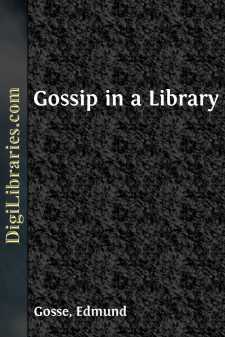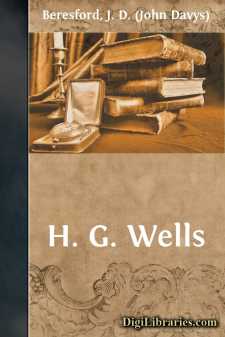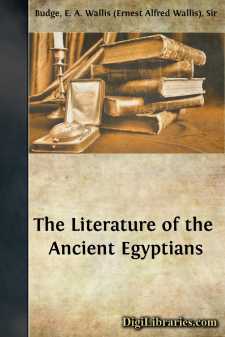Literary Criticism
- American 18
- Ancient and Classical 3
- Asian 1
- Australian & Oceanian 1
- Books & Reading 8
- Caribbean & Latin American 2
- Drama 2
- English, Irish, Scottish, Welsh 49
- European 7
- General 37
- Horror 1
- Humor 2
- Jewish 2
- Medieval 2
- Middle Eastern 3
- Poetry 7
- Renaissance 6
- Russian & Former Soviet Union 1
- Shakespeare 27
Literary Criticism Books
Sort by:
by:
Edmund Gosse
CAMDEN'S "BRITANNIA" BRITAIN: or a chorographical description of the most flourishingKingdomes, England, Scotland and Ireland, and the Ilands adioyning;out of the depth of Antiquitie: beautified with Mappes of the severallShires of England; Written first in Latine by William Camden,Clarenceux K. of A. Translated newly into English by Philémon Holland.Londini, Impensis Georgii Bishop &...
more...
INTRODUCTION THE NORMALITY OF MR WELLS In his Preface to the Unpleasant Plays, Mr Shaw boasts his possession of "normal sight." The adjective is the oculist's, and the application of it is Mr Shaw's, but while the phrase is misleading until it is explained to suit a particular purpose, it has a pleasing adaptability, and I can find none better as a key to the works of Mr H.G. Wells....
more...
by:
Arthur Symons
SAINT AUGUSTINE The Confessions of St. Augustine are the first autobiography, and they have this to distinguish them from all other autobiographies, that they are addressed directly to God. Rousseau's unburdening of himself is the last, most effectual manifestation of that nervous, defiant consciousness of other people which haunted him all his life. He felt that all the men and women whom he...
more...
by:
Arthur Acheson
CHAPTER I INTRODUCTORY The most interesting and important fifteen years in the records of English dramatic literature are undoubtedly those between 1588 and 1603, within which limit all of Shakespeare's poems and the majority of his plays were written; yet no exhaustive English history, intelligently co-ordinating the social, literary, and political life of this period, has ever been written....
more...
CHAPTER I THOTH, THE AUTHOR OF EGYPTIAN LITERATURE.WRITING MATERIALS, ETC. The Literature of ancient Egypt is the product of a period of about four thousand years, and it was written in three kinds of writing, which are called hieroglyphic, hieratic, and demotic. In the first of these the characters were pictures of objects, in the second the forms of the characters were made as simple as possible so...
more...
by:
Various
INTRODUCTION. In England, as elsewhere, criticism was a late birth of the literary spirit. English poets had sung and literary prose been written for centuries before it struck men to ask themselves, What is the secret of the power that these things have on our mind, and by what principles are they to be judged? And it could hardly have been otherwise. Criticism is a self-conscious art, and could not...
more...
by:
Bliss Perry
CHAPTER I. THE PIONEERS The United States of America has been from the beginning in a perpetual change. The physical and mental restlessness of the American and the temporary nature of many of his arrangements are largely due to the experimental character of the exploration and development of this continent. The new energies released by the settlement of the colonies were indeed guided by stern...
more...
INTRODUCTION In came the cardinal, grave and coldly wise,His scarlet gown and robes of cobweb laceTrailed on the marble floor; with convex glassHe bent o'er Guido's shoulder.Walter Thornbury. STILL unrivalled, after the lapse of four centuries the villas of the great cardinals of the Renaissance retain their supremacy over their Italian sisters, not, as once, by reason of their prodigal...
more...
The Problem of a Preface A peculiar difficulty arrests the writer of this rough study at the very start. Many people know Mr. Bernard Shaw chiefly as a man who would write a very long preface even to a very short play. And there is truth in the idea; he is indeed a very prefatory sort of person. He always gives the explanation before the incident; but so, for the matter of that, does the Gospel of St....
more...
CHAUCER March 17, 1894. Professor Skeat's Chaucer. After twenty-five years of close toil, Professor Skeat has completed his great edition of Chaucer. It is obviously easier to be dithyrambic than critical in chronicling this event; to which indeed dithyrambs are more appropriate than criticism. For when a man writes Opus vitæ meæ at the conclusion of such a task as this, and so lays down his...
more...











